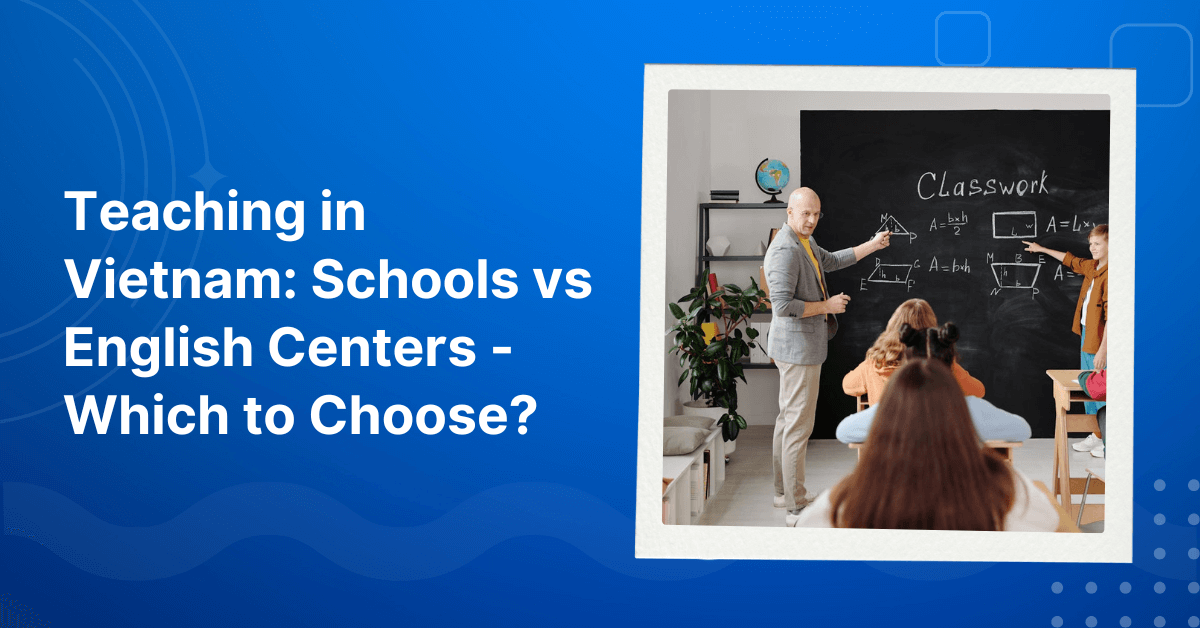Becoming a school principal is a significant milestone in an educator’s career, but acing the interview is crucial to securing the role. Preparing for a school principal interview can be a daunting task, as it requires showcasing your leadership abilities, educational expertise, and potential to create a positive learning environment. In this article, VTJ will provide invaluable insights and guidance to help you prepare for your school principal interview and stand out as an exceptional candidate.
STAR Response Technique for Principal Interview Questions

The STAR response technique is an effective way to structure your answers during a principal interview. It allows you to showcase your problem-solving abilities and leadership qualities clearly and concisely. This structured approach not only helps interviewers understand your experiences more clearly but also leaves a strong impression of your competency as a potential school principal. STAR stands for Situation, Task, Action, and Result. When responding to a question, start by describing the Situation (S) you encountered, the specific Task (T) or challenge you faced, the Actions (A) you took to address the situation, and the positive Results (R) achieved through your efforts.
Let’s break down each component of the STAR response technique:
- Situation (S): Begin by setting the context and describing the situation you faced. Explain the circumstances, challenges, or opportunities that arose in your role as an educator or school leader.
- Task (T): Next, clearly define the specific task or objective that needed to be accomplished in response to the situation. Explain what was expected of you and the desired outcomes.
- Action (A): Describe the actions you took to address the situation and achieve the task. Be specific and provide details about the steps you took, the strategies you employed, and any leadership approaches you used.
- Result (R): Finally, share the positive results and outcomes of your actions. Quantify your achievements when possible and highlight the impact of your efforts on students, teachers, or the school community.
Explore More About Interview: 40+ ESL Teacher Interview Questions & Answers
How to Prepare for a Principal Interview Questions?

Preparing for a principal interview questions is a crucial step towards securing a leadership role in education. To excel in the interview, thorough research is essential. Familiarize yourself with the school’s mission, values, and achievements, demonstrating your genuine interest in becoming part of their educational community. Reflect on your past experiences as an educator or school leader, identifying significant accomplishments and challenges that showcase your leadership abilities. Practice answering common interview questions using the STAR response technique to provide structured and impactful examples of your achievements. Showcase your leadership philosophy, problem-solving skills, and commitment to student success. Stay updated on current educational trends and policies to align the school’s practices with best practices in education. Additionally, practice mock interviews to gain confidence and refine your responses. By being well-prepared, demonstrating effective communication, and showcasing your passion for education, you can leave a lasting impression on the interviewers and increase your chances of landing the principal position.
Discover Related Guides: 40+ Preschool Teacher Interview Questions (+Answers)
General Principal Interview Questions

General principal interview questions are designed to assess a candidate’s qualifications, the candidate’s vision, orientation, and suitability for the role of a school principal. Here are some common general principal interview questions:
- Tell me about your educational background and professional experience as an educator.
- What motivated you to pursue a career in educational leadership and become a principal?
- How do you define your leadership style, and how do you apply it in a school setting?
- Describe a successful initiative or project you implemented in your previous role as an educator or school leader.
- How do you prioritize and manage your time as a school leader, especially with various responsibilities and tasks?
- Can you tell us about your leadership style and how it aligns with our school’s values and mission?
- What are your 3 strengths and weaknesses?
- What makes you especially suitable for this position that makes us need to choose you?
- What is your educational direction for the next 5 years?
- How to work under pressure?
- What are your proud achievements during your educational career up to this point?
Continue Learning: Teacher Strengths and Weaknesses: How to Answer?
Principal Interview Questions about Experience and Background

Principal interview questions about experience and background delve into a candidate’s past experiences as an educator or school leader. These questions aim to assess the candidate’s qualifications, leadership abilities, and how their previous experiences align with the requirements of the principal role. Here are some common principal interview questions about experience and background:
- Can you describe your previous experience as an educator or school leader and how it has prepared you for the role of a principal?
- What specific leadership roles have you held in the past, and how have they contributed to your growth as an educational leader?
- Describe a challenging situation you encountered in your previous role and how you successfully addressed it.
- What have been some of your most significant accomplishments as an educator or school leader?
- In your previous experiences, how have you supported teacher development and fostered a collaborative learning community among staff?
- Can you share examples of how you have effectively collaborated with parents, community members, or stakeholders to enhance the educational experience for students?
- Describe your experience in managing budgets and allocating resources to support educational initiatives.
- What have been some of the biggest challenges you faced in your previous roles, and how did you overcome them?
- Can you provide an example of how you have promoted innovation and creativity in the educational programs you were involved in?
- How have you contributed to school improvement and academic achievement in your previous roles?
- Describe your approach to building strong relationships and effective communication with teachers, students, and staff.
- What do you believe are the most critical qualities of a successful principal, and how do you exemplify them in your leadership?
- Can you share your experience in dealing with crisis situations or emergencies within a school setting?
See More Strategies: Create a Winning CV for Teachers in 2025 (Templates & Examples)
In-depth Principal Interview Questions

In-depth principal interview questions are designed to explore a candidate’s leadership philosophy, problem-solving abilities, and vision for educational excellence in greater detail. These questions delve into specific aspects of educational leadership and require thoughtful and comprehensive responses. Here are some in-depth principal interview questions:
- How do you empower teachers to be leaders and foster a culture of shared leadership within the school?
- Can you describe your approach to developing and implementing a school improvement plan?
- What strategies do you use to effectively manage and allocate resources to support academic programs and student needs?
- How do you assess the effectiveness of curriculum and instructional practices to ensure they meet the needs of diverse learners?
- Can you explain your experience with creating and maintaining a positive and inclusive school culture that celebrates diversity and equity?
- How do you support the professional development of teachers and staff to enhance their instructional practices and leadership skills?
- Describe your process for building strong relationships with parents and the community and involving them in school decision-making processes.
- How do you use data and assessment results to inform instructional decisions and improve student achievement?
- In challenging situations, such as budget constraints or personnel issues, how do you prioritize and make difficult decisions that benefit the school community?
- Can you share an example of a successful collaboration with external organizations or partners to enhance the school’s educational programs and resources?
- How do you promote a safe and secure learning environment for students and staff, both physically and emotionally?
- Describe your experience in resolving conflicts among teachers, staff, or parents and fostering a positive and collaborative school climate.
- What strategies do you use to effectively communicate with all stakeholders and keep them informed about school initiatives and progress?
- How do you stay updated on current educational trends and research to ensure the school’s practices align with best practices in education?
- Can you share an example of a long-term vision or goal you have set for a school and the steps you took to achieve it?
- How do you approach the recruitment, hiring, and retention of high-quality teachers and staff? What strategies do you employ to build a strong and cohesive team?
- Can you discuss your experience in promoting equity and inclusion within a diverse student population? How do you ensure that all students have equal access to opportunities and resources?
- Can you describe your approach to resolving conflicts and addressing disciplinary issues among students? How do you balance the need for discipline with restorative practices and a focus on student growth?
- How do you ensure effective communication and collaboration among all stakeholders, including teachers, staff, parents, and community members?
- Can you discuss your experience in managing budgets and resources effectively? How do you prioritize spending to support student learning and achievement?
Explore More: Teacher Cover Letter Examples and Templates for Any Teaching Position
Principal Interview Questions with Sample Answers
Tell me what you know about our school, and why you want to work here.
Sample Answer: “I have conducted extensive research on your school and am impressed by its strong commitment to academic excellence and fostering a positive and inclusive learning environment. Your school’s focus on nurturing the individual strengths and talents of students aligns perfectly with my educational philosophy. I am inspired by the dedication of your teachers and staff in creating a safe and supportive space for students to thrive. The school’s emphasis on collaboration, community engagement, and innovative teaching practices resonates with my vision for educational leadership. I am excited about the opportunity to contribute to your school’s continued success and make a positive impact on the lives of students and the entire school community.”
Discover Related Guides: 14 Types of teaching methods for an effective lesson
List some traits of highly effective teachers. What are some of the questions you ask them during the interview process to make sure you’re getting the talent you need?
Sample Answer: “Highly effective teachers possess several key traits, such as strong communication skills, a passion for teaching, adaptability, creativity, and a student-centered approach. During the interview process, I ask candidates about their experience in differentiating instruction to meet diverse learning needs. I inquire about their ability to create a positive and inclusive classroom culture, and how they handle challenges and conflicts within the classroom. Additionally, I explore how they use formative and summative assessments to inform their instructional practices and drive student achievement. By asking these questions, I can assess a candidate’s teaching philosophy, instructional strategies, and commitment to continuous professional growth, ensuring we select teachers who align with our school’s mission and values.”
Read more: Why do you want to be a Teacher? 15+ Example Answers
What new services or activities did you establish at your previous school?
Sample Answer: “At my previous school, I introduced a peer mentoring program that paired experienced students with newcomers to facilitate their transition into the school community. This program helped foster a sense of belonging and provided valuable support to incoming students. Additionally, I established a teacher-led professional learning community where educators collaborated to share best practices and discuss strategies to improve student learning outcomes. This initiative encouraged a culture of continuous improvement and professional growth among the staff. Lastly, I implemented a school-wide wellness program, which included mindfulness activities and stress management workshops for both students and staff. This program positively impacted the overall well-being of the school community, leading to increased student engagement and improved staff morale.”
Continue Learning: How To Write a Lesson Plan in 6 Steps: The Complete Guide
When you’ve dealt with difficult students in the past, at what point did you involve parents? How did you communicate with them?
Sample Answer: “When dealing with difficult students, I believe in involving parents early in the process to ensure a collaborative and supportive approach. As soon as behavioral or academic concerns arise, I reach out to parents to schedule a meeting. During this meeting, I actively listen to their perspective and gather information about the student’s strengths and challenges. I maintain open and honest communication, discussing specific incidents and outlining the school’s support systems. Together, we work on creating a plan to address the issues, setting clear expectations and goals for the student. Regular follow-up meetings with parents help monitor progress and make any necessary adjustments to support the student’s growth. By involving parents from the beginning, we can work as a team to ensure the student’s success and well-being.”
Describe a time you had to give negative feedback to a veteran teacher. How did it go?
Sample Answer: “Providing negative feedback to a veteran teacher can be challenging, but it is essential for professional growth and improvement. In one instance, I noticed that a veteran teacher’s instructional practices were becoming stagnant, and student engagement was declining. To address this, I scheduled a private meeting with the teacher to discuss my observations and concerns. I began the conversation by acknowledging the teacher’s experience and dedication to students. I then presented specific evidence and data to support my feedback and focused on areas for improvement rather than personal criticism. I offered support and resources, such as professional development opportunities, to help the teacher develop new instructional strategies. The teacher was receptive to the feedback and appreciated the constructive approach. Over time, I noticed positive changes in their teaching methods and student outcomes. The teacher’s willingness to embrace feedback and implement new strategies contributed to their continued growth as an educator.”
See More Strategies: 20+ Common teaching job interview questions & answers in Vietnam
Tell me about the most recent professional development-related activity you engaged in – and what you learned from it
Sample Answer: “In my most recent professional development activity, I attended a leadership seminar focused on fostering a culture of innovation in schools. The workshop explored strategies to promote creativity and critical thinking among staff and students. I learned the importance of encouraging a growth mindset and providing opportunities for teachers to experiment with new teaching methods and technologies. The seminar emphasized the significance of creating a safe space for educators to take risks and learn from both successes and failures. I gained insights into how a culture of innovation positively impacts student engagement and achievement. As a result of this training, I have implemented more opportunities for teachers to collaborate and share innovative ideas, leading to exciting changes in our instructional practices and student-centered initiatives.”
How do you empower teachers to be leaders?
Sample Answer: “Empowering teachers to be leaders is fundamental to the success of the school community. I believe in providing a supportive and collaborative environment where teachers can take ownership of their professional growth. I encourage teachers to participate in leadership development programs, attend workshops, and pursue advanced certifications. Additionally, I create opportunities for teachers to lead initiatives and projects that align with their interests and expertise. By involving them in decision-making processes and valuing their input, I foster a culture of shared leadership. Regular feedback and recognition for their contributions are essential to boost their confidence and motivation. Empowered teachers become role models for their peers and are more likely to take initiative and drive positive change in the school.”
Related Guides: Meaningful Feedback for Students: Importance, Tips and Examples
Can you describe your definition of quality and effective instruction?
Sample Answer: “Quality and effective instruction is at the core of student success and engagement. To me, it means providing learning experiences that are engaging, student-centered, and cater to the diverse needs of all learners. Effective instruction incorporates best practices and research-based strategies that encourage critical thinking, creativity, and problem-solving skills. It involves setting clear learning objectives, providing timely and constructive feedback, and using data to inform instructional decisions. Quality instruction also fosters a positive and inclusive classroom environment where students feel supported and motivated to excel. Teachers should be facilitators of learning, encouraging active participation and fostering a love for lifelong learning in students.”
What steps can you take to support a safe learning environment for the campus?
Sample Answer: “Creating a safe learning environment is paramount to ensuring the well-being and success of our students and staff. First and foremost, I collaborate with school staff to establish clear and comprehensive safety protocols and emergency response plans. Regular safety drills and training sessions are conducted to ensure everyone is prepared for any potential situation. Additionally, I promote a culture of respect and inclusivity by implementing anti-bullying programs and character education initiatives. I encourage open communication between students, teachers, and parents to address any concerns promptly. Implementing a comprehensive student support system, including counselors and social workers, is essential to providing the necessary assistance to students facing personal challenges. By continuously evaluating and improving safety measures, we can create an environment where students feel secure, valued, and motivated to learn.”
Explore More: 13 Types of Students in the Classroom and How to Deal with Them
Can you explain a mistake you have made in the past and how you addressed it?
Sample Answer: “As an educational leader, I recognize that mistakes are opportunities for growth and improvement. One instance where I made a mistake was implementing a new instructional program without fully considering the readiness and support needed for the teachers to adapt to the changes. As a result, some teachers expressed concerns about the program’s effectiveness and their ability to implement it successfully. To address this, I immediately sought feedback from the teachers and acknowledged their valid concerns. I scheduled additional training sessions and provided ongoing support and resources to help them feel more confident in using the program effectively. I also involved teachers in the decision-making process for future initiatives to ensure their input and buy-in from the beginning. This experience taught me the importance of collaborative decision-making and the necessity of considering the readiness of stakeholders before implementing significant changes.”
How have you resolved a conflict between adults on campus?
Sample Answer: “Resolving conflicts between adults on campus requires a careful and empathetic approach. In one instance, two teachers had a disagreement regarding the allocation of classroom resources, leading to tensions and a negative impact on the school climate. I initiated a private meeting with both teachers to listen to their perspectives and concerns. I facilitated an open and respectful discussion, encouraging active listening and validating their feelings. By focusing on common goals and the best interests of the students, we were able to find a compromise that satisfied both parties. To prevent similar conflicts in the future, I implemented regular team-building activities and communication workshops to foster a culture of mutual respect and collaboration among the staff. By addressing conflicts promptly and transparently, we can ensure a harmonious and supportive environment for everyone on campus.”
Read more: How to Teach Writing Skills to Students Effectively in 8 Simple Steps
A principal interview is an opportunity for educators to showcase their leadership, vision, and experience in shaping an exemplary learning environment for students. By utilizing the STAR response technique, preparing thoroughly, and answering a diverse range of principal interview questions, candidates can impress interviewers and increase their chances of securing this vital educational leadership role. Demonstrating a deep understanding of the school’s values and a commitment to fostering a safe, inclusive, and academically excellent environment will leave a lasting impression and position candidates as exceptional candidates for the role of a school principal. So, prepare with confidence and embark on the journey of leading and shaping the future of education.






